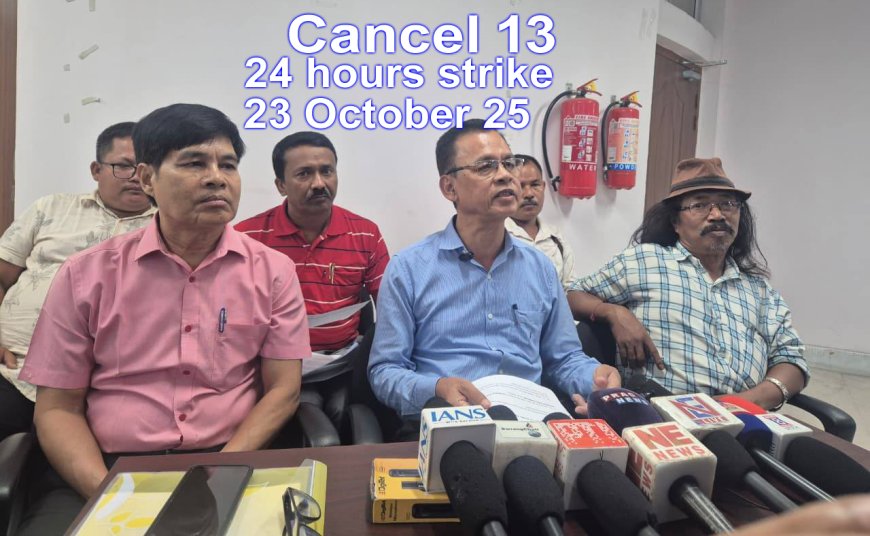Tripura: 24-Hour Bandh Rescheduled to October 23; Focus on Bangladeshi Pushback, Inner Line Permit & Kokborok Script
The 24-hour Tripura bandh, postponed from October 13 to October 23, will highlight demands including Bangladeshi pushback, ILP implementation, and recognition of Kokborok Roman script. Led by TIPRA Motha MLA Ranjit Debbarma, the movement aims to assert indigenous rights and cultural identity.

Agartala, Oct 11 — The 24-hour statewide bandh in Tripura, earlier planned for October 13, has been postponed to October 23 due to the ongoing Puja festivities. The bandh has been called by the civil society under the leadership of TIPRA Motha Party MLA Ranjit Debbarma, pressing for eight major demands related to the rights and welfare of the indigenous Tiprasa people.
The key demands include:
-
Immediate pushback of illegal Bangladeshi immigrants from Tripura.
-
Implementation of the Inner Line Permit (ILP) system to protect the land, culture, and identity of the indigenous population.
-
Official recognition of the Kokborok Roman script, alongside efforts to preserve and promote the Tiprasa language and heritage.
-
Greater political and administrative autonomy for tribal areas.
-
Employment opportunities and reservation benefits for local youths.
-
Improved infrastructure and healthcare facilities in TTAADC regions.
-
Protection of forest land and traditional community rights.
-
Special economic package for indigenous development.
The bandh organizers said the postponement was made in respect of the Puja celebrations, ensuring that the movement does not disrupt the festive spirit. However, they reaffirmed that the October 23 protest would be observed across the state “peacefully but powerfully” to draw attention to long-pending issues.
Essential services such as hospitals, media, and emergency departments will remain functional, while transport, markets, and offices may see major disruptions if public participation turns widespread.
By Choba Tripura
